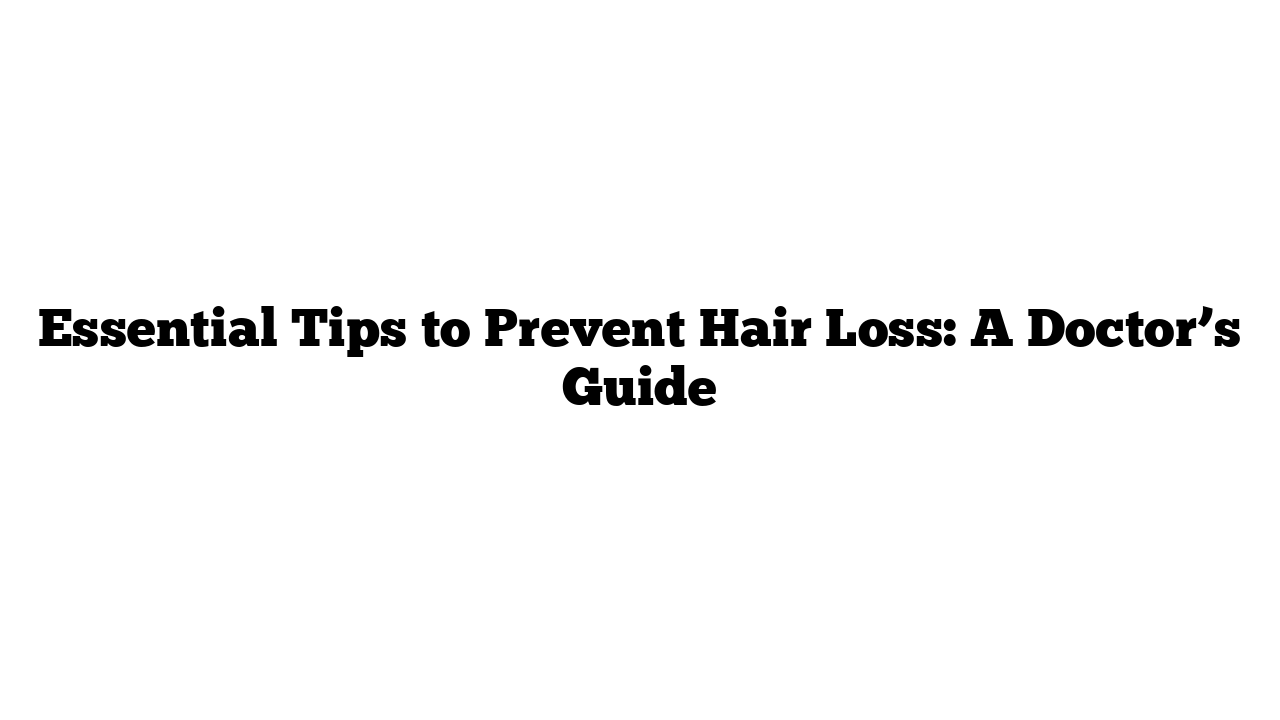Over the years, many of my clients have expressed concern about hair loss. They often notice clumps of hair in the shower, on their brushes, or scattered in the sink. Thankfully, there are effective habits you can adopt to reduce hair loss, along with some surprising factors that could be contributing to your thinning locks.
Understanding Hair Loss
Hair loss can be distressing, but it’s important to understand what you’re dealing with. Common signs include excessive shedding and noticeable breakage. But don’t worry—there are steps you can take to address these issues.
The Story of Transformation
When I first opened my salon, my co-founder Leslie struggled with significant hair breakage and loss. However, after just one year of receiving regular hair care and treatments from our talented stylists, her hair transformed beautifully! Her experience is a testament to the effectiveness of a healthy hair care routine.
It became a running joke among my clients—many commented on how it felt like they had more hair. And our stylists even playfully referred to their techniques as their “magic fingers.” While the phrase may sound whimsical, the results speak for themselves.
The Science Behind Scalp Health
While there’s no magic solution for hair growth, good scalp health is crucial. Regular scalp massages can help activate hair follicles and improve overall scalp health.
Incorporating Scalp Massages
When you wash your hair, take a moment to massage your scalp using the pads of your fingertips rather than your palms. This approach is much more effective at cleaning away oil and buildup. Imagine trying to clean greasy dishes without seeing them—it’s a challenge!
Be mindful not to be too aggressive; your scalp should not feel sore after a wash. A gentle yet firm massage promotes circulation, which is beneficial for your hair follicles. If you enjoy using a scalp scrubber, feel free to do so, but always start with your fingers to ensure a thorough clean.
Identifying the Type of Hair Loss
Understanding whether you’re dealing with breakage or shedding is key.
Breakage vs. Shedding
If you notice shorter hairs on your brush or around your home, you’re likely experiencing breakage. This can often be addressed through a solid hair care routine, such as my Trinity Method, designed to strengthen and nourish your hair.
On the other hand, if you’re finding long strands of hair that have fallen out, that’s shedding. Normal hair shedding can vary significantly from person to person, so don’t let online quizzes or articles stress you out. As someone who has cleaned countless brushes, I can assure you that shedding doesn’t always indicate thinning.
Addressing Excess Shedding
If you’re noticing more hair loss than usual, it’s vital to take action promptly. Ignoring the issue can lead to more severe problems down the line. Seek professional advice and avoid home remedies that promise miraculous results without any evidence.
Common Causes of Hair Loss
Several factors could contribute to hair loss, and identifying the root cause is essential.
1. Stress and Anxiety
High levels of stress can lead to hair loss, and managing your mental health is crucial. When stress levels decrease, many individuals experience hair regrowth. As I always say, “You can’t pour from an empty cup.” Prioritize self-care to support both your mind and body.
2. Nutrition
What you eat plays a significant role in your hair’s health. Your body needs nutrients to create and maintain hair. A diet lacking essential calories and nutrients can lead to hair loss. So, ditch the rabbit food and focus on balanced meals with plenty of calories.
3. Medical Conditions
Hair loss can sometimes signal underlying medical issues, such as thyroid problems or hormone imbalances. If you suspect a medical condition is affecting your hair, consult a dermatologist who specializes in hair loss.
4. Physical Trauma
Experiencing trauma, such as an accident or surgery, can shock your body and lead to temporary hair loss. Fortunately, hair growth typically resumes as your body heals.
5. Medications
Certain medications may cause hair loss as a side effect. If you suspect this is the case, talk to your doctor before making any changes to your medication regimen.
6. Genetics and Age
Genetic factors can also contribute to hair loss. If you have a family history of hair loss, you may be predisposed to similar issues. Early intervention with appropriate treatments can make a difference.
Taking Action
If you’re experiencing hair loss and are unsure of the cause, the best course of action is to consult with a dermatologist who specializes in this field. They can provide personalized insights and conduct necessary tests to uncover the underlying issues.
While dealing with hair loss can be challenging, there is hope. With the right approach and care, many people see positive results. Remember, taking action early is key to effective treatment.
If you’re looking for more hair care tips and remedies, visit medicaltimes.io for comprehensive articles and resources.
